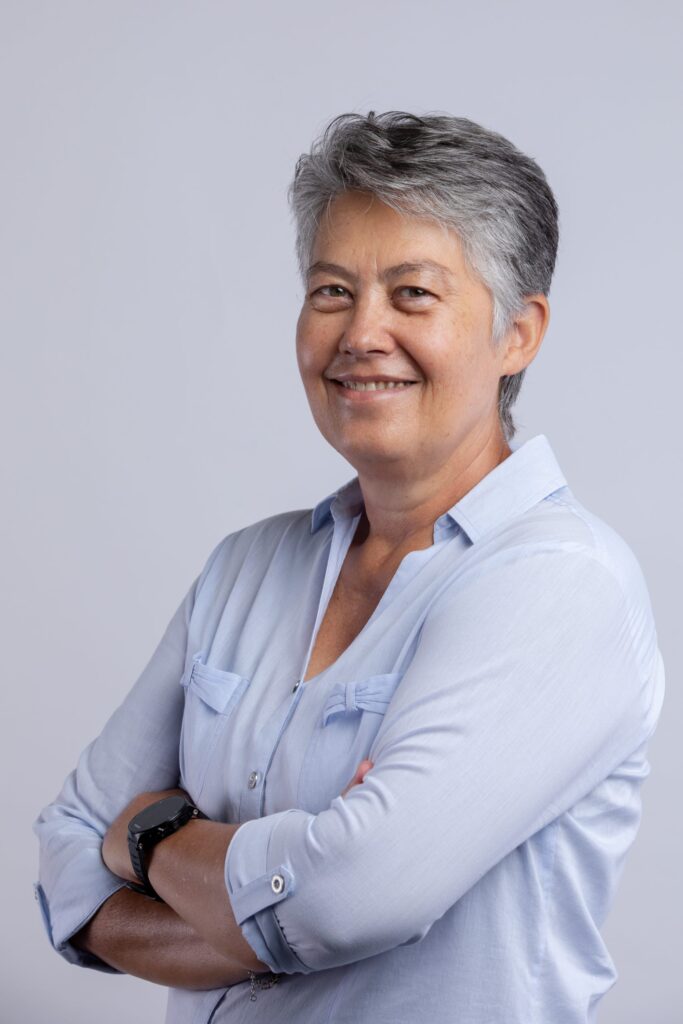3 September 2024

The ESCALATOR Empower Track team recently had the honour of speaking to Dr Karen Calteaux, a prominent leader in South African digital humanities research.
As Impact Area Manager at the Council for Scientific and Industrial Research (CSIR), and Deputy Chairperson of key SADiLaR committees, Dr Calteaux brings unique insights to our discussion and, with expertise ranging from voice user interface design to sociolinguistics, she is ideally positioned to shed light on the ESCALATOR programme.
Dr Calteaux shares her thoughts on how this initiative is shaping the future of digital research in South Africa, particularly for women entering the field.
How do you think the ESCALATOR programme specifically benefits women researchers?
ESCALATOR creates opportunities for women scientists to collectively upskill themselves, and benefit from women-focused events which enable the sharing of the perspectives of other women practising in their fields. Very often, women face specific challenges in the workplace, which can be discussed at such events.
What are your overall impressions of the ESCALATOR programme?
The ESCALATOR programme is an excellent initiative aimed at empowering women researchers and developers with the capabilities to contribute to transitioning the country to a digital economy. This is critical if one considers the challenges of creating an equitable work force in which women scientists are not far outnumbered by their male counterparts.
What advice would you give to women looking to benefit from the ESCALATOR programme?
It is rare that an organisation focuses on hands-on capacity development as well as the opportunity for women to engage on topics of importance in their professional lives. I would encourage women to grab these opportunities, but also to spread the word about the programme. In this way, we can develop a community of women practitioners supporting one another and make a tangible contribution to the digital future of our country.
(Written by: Jessica Mabaso)
